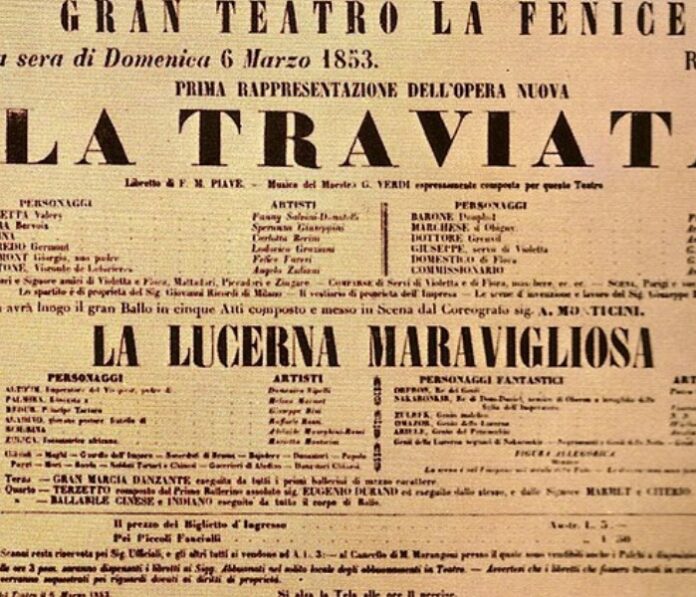At around 8 o’clock in the evening on Oct. 18, 2024, the Winspear Opera House in downtown Dallas was packed with opera goers, all dressed to the nines and eager to take in the opening performance of Guiseppe Verdi’s “La Traviata.”
The Dallas Opera certainly chose well for the first production of their 2024-2025 season. Written in 1853, “La Traviata” is one of the most enduringly popular operas of all time.
“La Traviata,” or “The fallen woman,” is the story of Violetta, a Paris courtesan who, seeking to change her lavish but empty lifestyle, falls in love with the young bourgeois Alfredo. Yet out of love for him, she chooses to give him up for the sake of his family’s reputation.
At the end of the opera, when Violetta is dying of tuberculosis, Alfredo returns to her and the two reconcile just before she succumbs to her illness.
The production featured soprano Yaritza Véliz as Violetta and tenor Javier Camarena as Alfredo, both in their Dallas Opera debut. Hailing from Coquimbo, Chile, Véliz has performed with both European and American opera companies.
The dichotomy between her effortless vocal control and the seemingly spontaneous raw emotion that she brought to the role of Violetta held the Dallas audience spellbound.
Camarena is from Xalapa, Mexico, and was named the 2021 International Opera Awards “Male Singer of the Year.”
His experience playing romantic leads made him a wonderful fit for the lovesick Alfredo, and the warm timbre of his voice complimented Alfredo’s desperate, dramatic vocal line perfectly.
Véliz and Camarena’s stage chemistry was palpable, making audiences wish that just this once, the opera would end differently.
A unique characteristic of this production was the artistic decision to set it in the 1920s instead of its traditional setting of the 1850s. Although this choice resulted in very different visuals from the typical production of “La Traviata,” it was effective.
The perverse worldliness in which Violetta is embroiled and seeks to escape from throughout the opera was made new and fresh in the decadence of the Gilded Age.
The moral underpinnings of the plot were also manifested through costuming. During the party scene directly after Violetta has left Alfredo, the revelers are dressed in grotesquely extravagant red and black costumes.
When Violetta enters, she is dressed all in white, illustrating that although she is a fallen woman and they are aristocrats, she is virtuous while they are perverted. The set design was also reflective of the deeper themes of the plot. The set was circular, rotating on a turntable and sectioned off into different rooms.
A controversial aspect of the production was the cross-dressing between two supporting characters who appeared in the party scenes. This costuming could be interpreted as a portrayal of the distorted society in which Violetta and Alfredo find themselves. On the whole, however, the production was true to the spirit of Verdi’s original.
If you’ve never seen an opera and want to experience one, the Dallas Opera is right in our backyard! UD’s own Professor Kristin Van Cleve is the principal second violinist.
The English supertitles make opera accessible to the beginner, and student tickets go for as little as $15 at specific performances.
